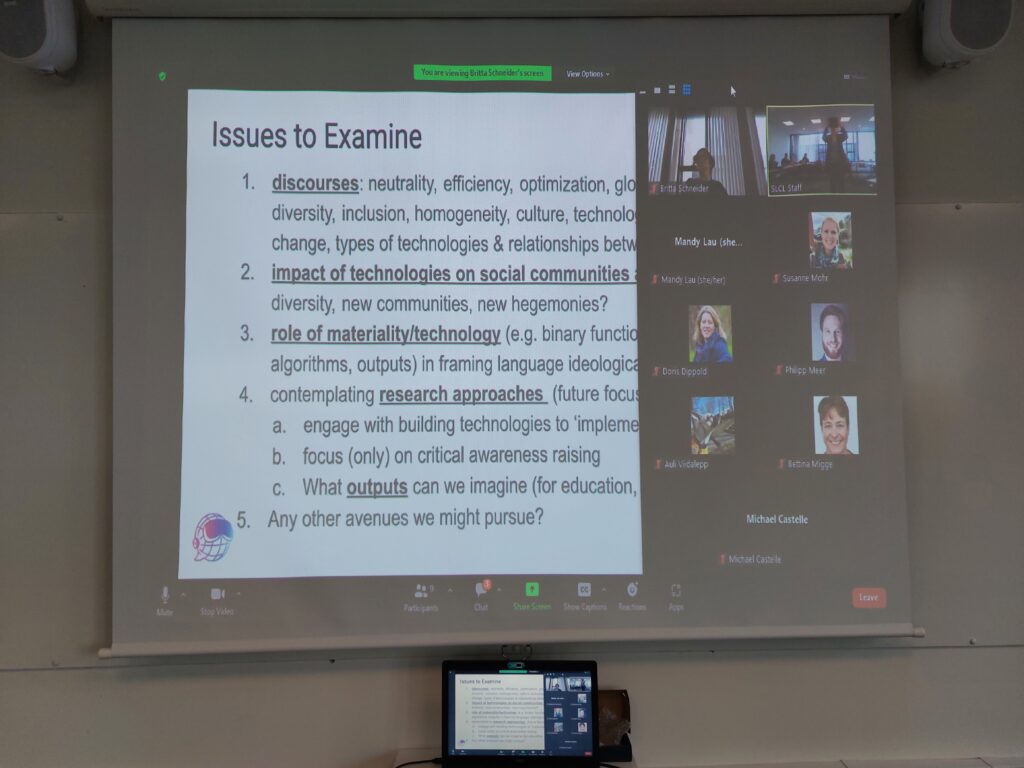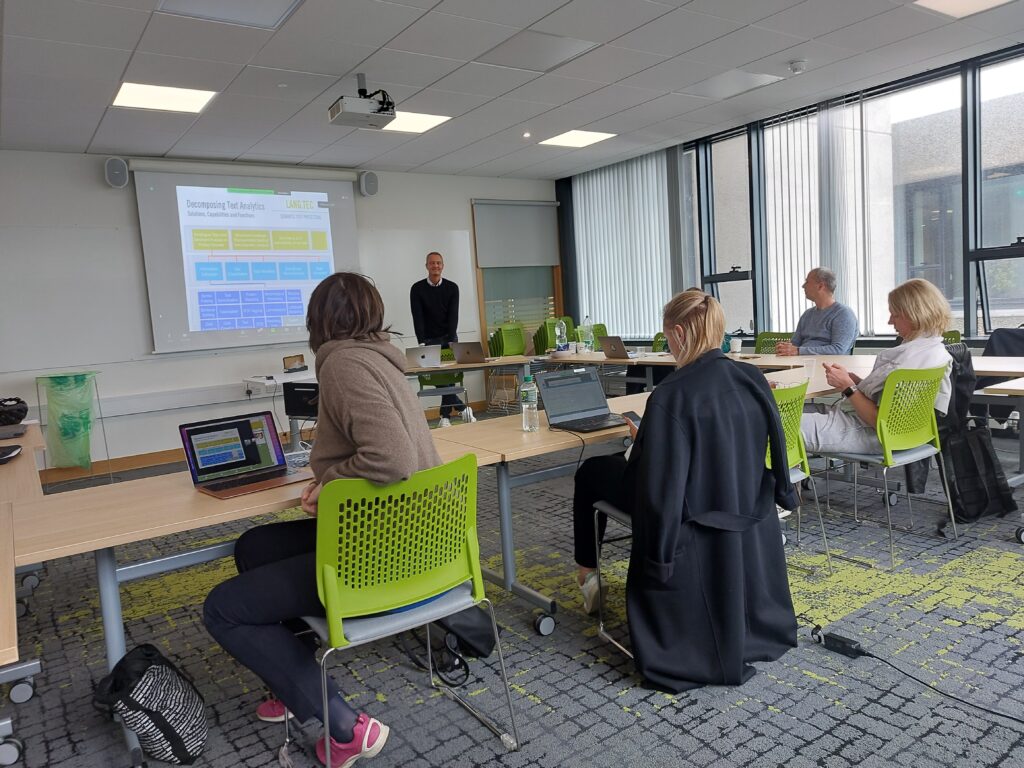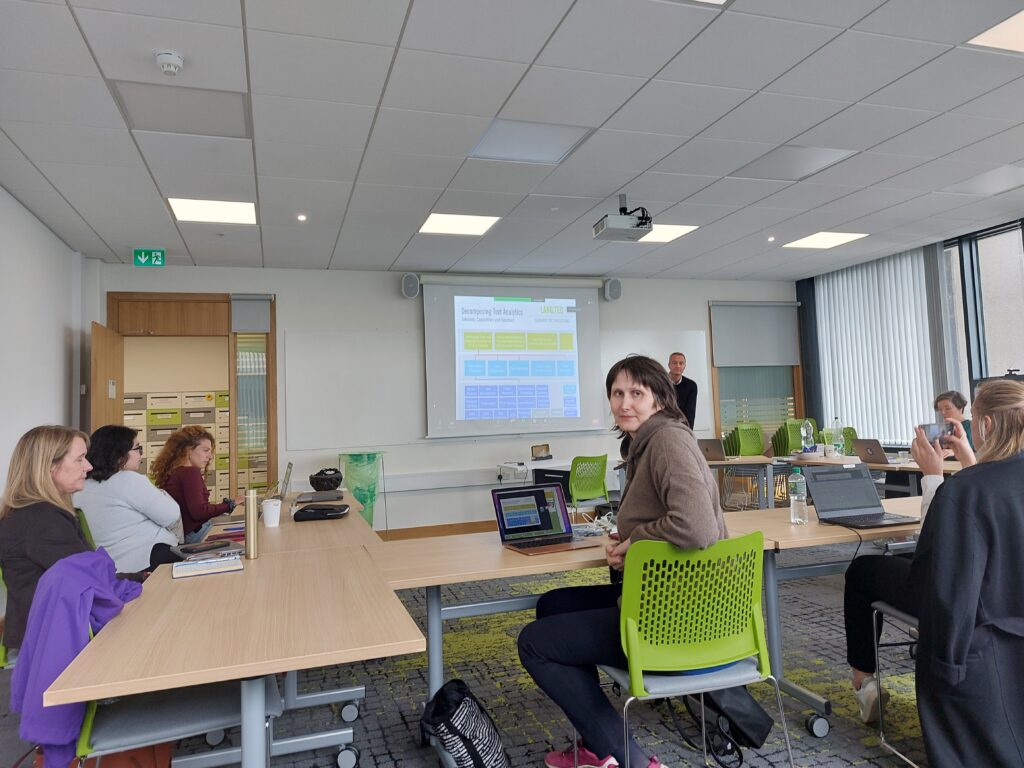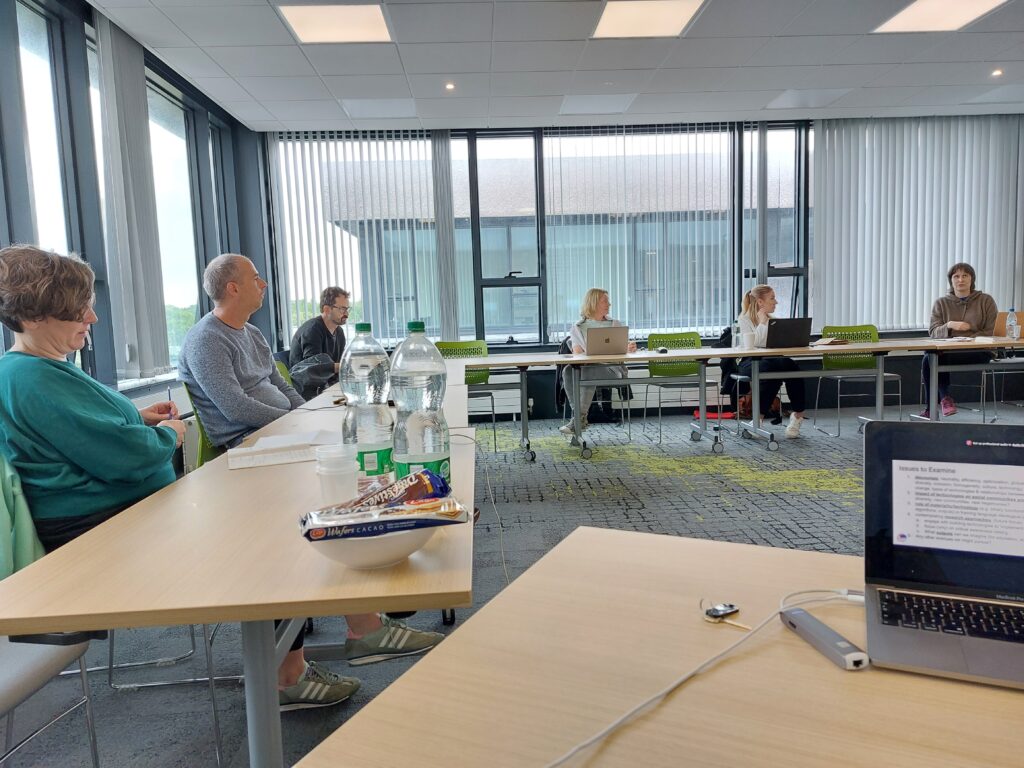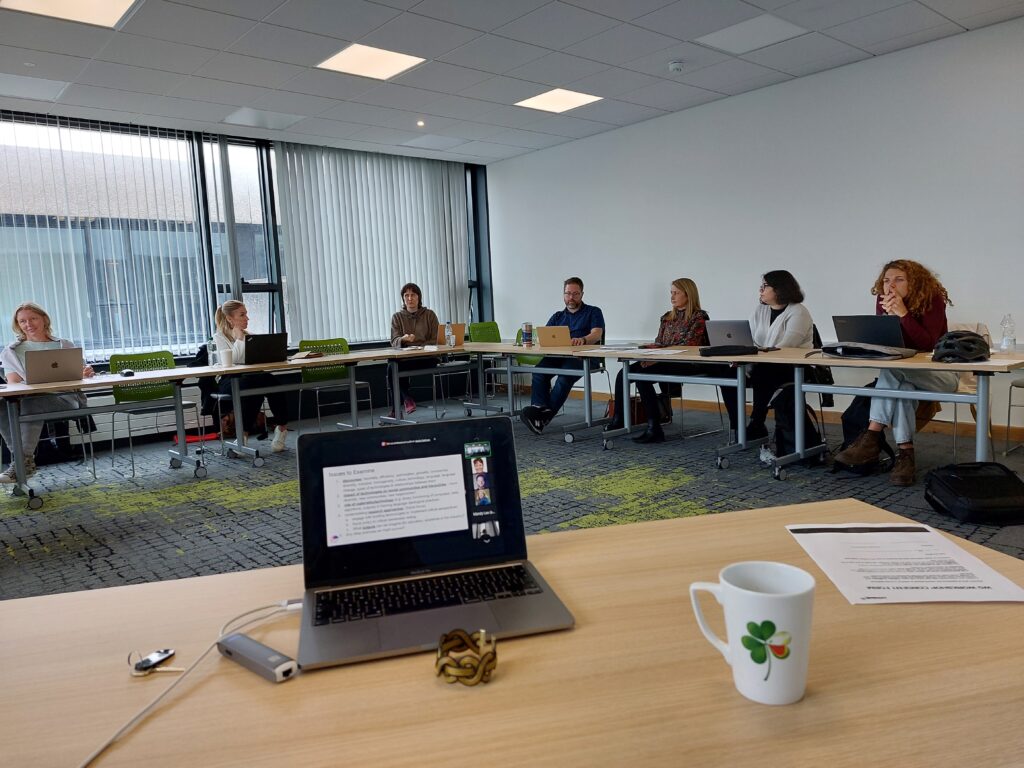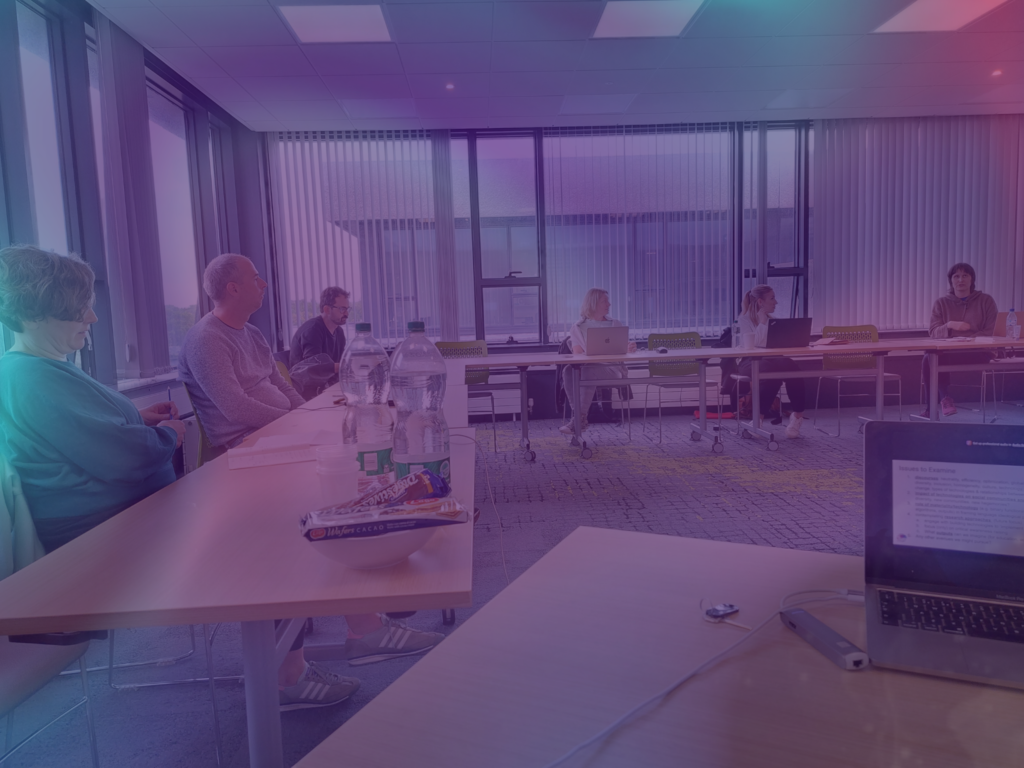Working Group 6 Meeting – Ideologies, Beliefs, Attitudes in the context of the language technology industry, University College Dublin, 8th and 9th of October 2022, generously funded by the COST Action Language in the Human-Machine Era
Organizers: Bettina Migge & Britta Schneider
Other Participants: Iker Erdocia, Michael Castelle, Morana Lukač, Auli Vidalepp, Sviatlana Höhn, Helen Kelly-Holmes, Stephen Lucek, Didem Leblebici, Beatrice Savoldi, Patrick McCrae (online: Doris Dippold, Philipp Meer, Mandy Lau, Susanne Mohr)
From Thursday 8 to 9 September 2022 WG 6 that explores Language Ideologies & Beliefs of Language Technologies met at University College Dublin in Dublin, Ireland. We were 12 people in Dublin and four people joined virtually. The meeting was kicked off by a presentation of the co-Chairs (Britta Schneider and Bettina Migge) who summarized the aims of the working group, our working modes and the activities carried out over the last two years. We also presented the main findings to date and issues for further investigation that emerged at the different meetings and from the collaborative chapter that working group members have been contributing to over the last one and a half years. The entire group engaged in a discussion on the role of the affordances of hardware and software in the design of language technologies as well as the role of user data and how it eventually affects programmers’ and developer’s decisions.
On Thursday afternoon Patrick McCrae from the company Langtec in Hamburg presented his company’s work in the area of Computational Linguistics and Semantic Text Processing. There were many interesting synergies between participants’s research (interests) and we learned a great deal about the workings of different approaches and technologies. Pat also provided very insightful insights into how business contingencies impact on the selection of and development of projects and emphasised the important role of human knowledge in the process of managing and building language technology applications.
On Friday, we started off the day with a workshop presentation by Sviatlana Höhn about chatbot design. She gave us hands-on insights into the programming of chatbot interactions and we discussed how conversations can be made more interactive. The rest of the morning was spent discussing further activities (talks, discussions and future publications) and the development of common projects in small groups while enjoying UCD’s woodland trail. During the afternoon we brought together all the great ideas that had emerged and (a) developed a schedule of events for 2022/23 and (b) outlined two cross-national and inter-related research projects on technology design, discourses of the programming industry and user experiences that we can start undertaking now as a way of developing publications, conferences/workshops and grant application during the coming years.
All participants felt very inspired by the interdisciplinary discussions and we are looking forward to the next in-person working group meeting to be held in May 2023.
